By Toyin Falola
Let me introduce Professor Abiodun Salawu through the intricate process of what the Yoruba call aroba, translated as memory. He is an integral part of our African collective memory. Every human society is a system, and the functionality of a system relies on very specific factors, the chief of which is memory.
This is underscored by the awareness that of all the components of a system, memory provides a general substance used to determine the progress, effectiveness, and potentiality of a particular system. This becomes an inevitable condition considering the discovery that achievements of the past are necessary indices that propel us to evolve and create new initiatives that would transform humanity or the system itself into something more functional, very integral and generally fundamental to everything that we do.
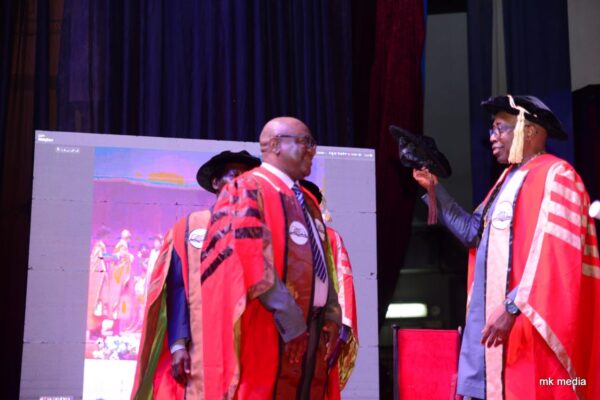
To that extent, we can argue that memory is an accumulation of everything we have encountered in the past, and it can stimulate us to reconsider our steps and compel us to think productively in our current or future engagements. Examined very closely, memory can be likened to itan, that is, history. As in history, memory is what we run to when we need to understand a complex situation. Since there is every tendency that such experiences encountered today are only recycled and not particularly new, we can argue comfortably that memory helps to guide us in making decisions, creating ideas, and formulating initiatives that promise to bring lasting development.
This long introduction defines what Professor Abiodun Salawu represents. He preserves our memories in our collective system. He is the component of society as a working system that provides us with all the motivations and support needed to transform our future into something meaningful and outstanding. Let me proceed to present his essence and viability.
As a communication expert, one of the major responsibilities is to educate us about the critical approaches through which information can be handed down to humans because not only is the approach to communication an important factor in facilitating changes that we need as a collective, but it also helps us to travel into the minds of others who already have towed the same path. Meanwhile, effective communication itself does not have a conventional framework as the ways and attitudes towards communication differ from place to place, culture to culture, and identity to identity.
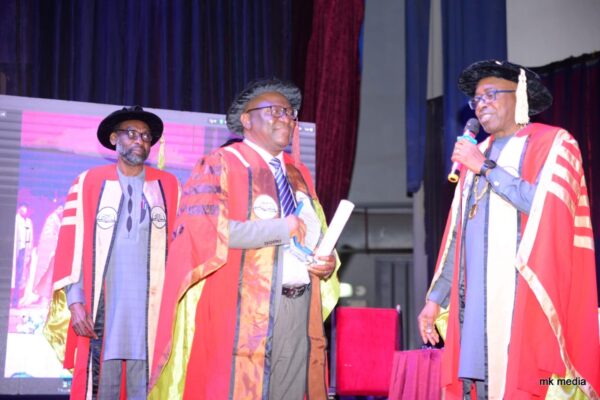
As will be discovered shortly, the outstanding Professor Salawu has invested in understanding the communicative methodologies of past African peoples so much that we can never cease to learn from him how pre-Western African civilization achieved the greatness associated with them today. Of course, this may not be obvious for academics whose environment of interest does not encompass arts, history, and philosophy. However, it remains indisputable that communication experts have the talent to project the philosophical positions and paradigmatic approaches of the past so that they can remind us of the ways that things were done in the past. In the past, it was often the case that people were hugely invested in the aspect of communication, and they ensured that they artfully passed across their intentions through the power of communication. It is a relic of history that is retrievable even in ancient Egyptian practices. Talking very effectively is something in which one is highly invested. However, with Professor Salawu, the task is more than just talking.
For one, this Professor of inestimable value has been a core advocate for decoloniality and decolonization using the undergarment of communication and language as viable systems. He believes, for instance, that much of the African values and contents are often lost during the process of translation, transliteration, and transformation of cultural ideas through the agency of another language and that nearly all human society has unique ways through which they pass their efforts and ideals to successive generations through their language use. In essence, when expressions meant to enhance a particular behaviour are used indiscriminately in another language, they fail to perform the very responsibility for which they are meant to. This occurs because behind every expression, witty saying, axiom and all forms of condensed communication substances, there is a floodgate of history that is usually unaccounted for using external languages. Meanwhile, when such external languages now take the front seat position in people’s engagements, it cannot be overemphasized that they could have lost a chunk of their history, philosophy and values, all of which will signal the gradual but consistent erosion of their value and essence. To individuals like Professor Salawu, therefore, we must understand the ways through which people of the past maintained their sanity and protected their values for generations. This is inevitable in light of the understanding that any misuse of an expression can lead to very daring consequences. As such, individuals who keep such archives are very instrumental in the transformation of their societies.
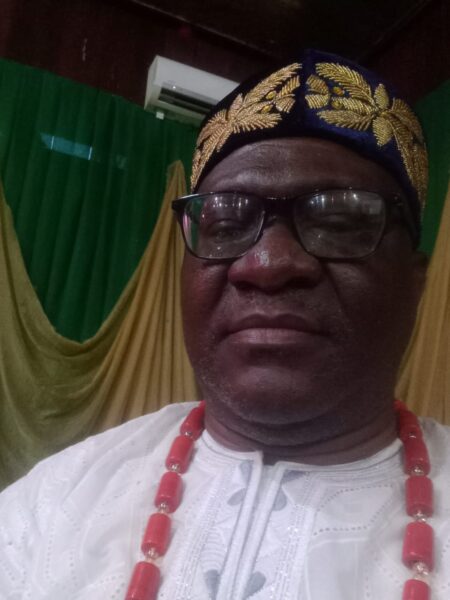
Among many other things, Professor Salawu has stressed in his publications how the appropriation of different languages has made development more difficult to court in the real sense of the word. He has argued, for example, that many of the people in society have always remained distant from the activities of their leaders precisely because they are not equipped with the necessary tools to understand the codes that are passed to them through communication. The problem persists owing to Africa’s and African intransigence in keeping external languages in their domestic affairs. For that reason, democracy has been an elusive commodity, true development has been difficult to accomplish, and lasting transformation has been almost impossible. It cannot be overemphasized how far Africa would have accomplished on the occasion that they gave priority to their communicative power, which was deployed in the past. The refusal to explore these items of the past has come to challenge them in usually unimaginable ways, which they often cannot immediately link to their current predicament. It is believed that the manifestation of progress lies in how leaders can establish communication with their followers, who would eventually go to practice what is given to them. We cannot be doubtful of his claims when we understand, for example, that it is difficult to come across civilizations or groups that have attained any level of development today without them keeping their ancestral communicative power.
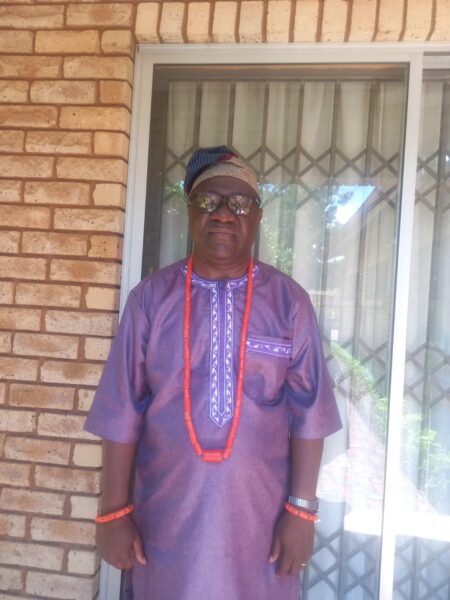
The domino effect of using indigenous languages as instruments of conscientization cannot be overstated. For one, it is often the case that conflict resolution occurs very effectively and immediately when the language of communication during the process of intervention is indigenous. People tend to participate actively in such an engagement with the tacit understanding that they cannot be shortchanged and undermined for whatever reason. All of these rely on the fact that people have access to the linguistic wisdom deployed by their ancestors by merely functioning as members of a society. I cannot but state how marvelled I am by the understanding that linguistic materials, which are often derived from the past, can ultimately be deployed for the enhancement of a better society. I learned this lesson by reading Professor Salawu’s brilliant scholarship.
Through his works, for example, I have realized that what we often dismiss as irrelevant and inconsequential has been fundamental to any and every form of advancement that we conceive as humans. After all, he has successfully established that the form of transformation which occurs in a place proportionally relates to their deep-seated immersion in the language and expressions of the past. Such linguistic devices and evidence are retrieved to facilitate changes and bring about desirable transformations that a community desperately wants. Businesses, politics, social life, and mental infrastructure are often determined by the fecundity of the language in use, and once indigenous communication tools are scrapped, it comes with multidimensional consequences.
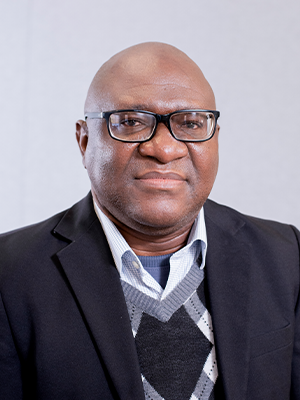
We cannot underplay how immensely important Professor Salawu has been. He has accomplished tremendously in the environment of his intellectualism, and beyond that, he has made himself very pivotal in the transformation of every place where he finds himself. In South Africa, Professor Salawu has made an indelible mark in the sand of time, where people have always found success and safety by relishing his input. This man is a success and has also encouraged a hoard of individuals to take promising routes in their careers. He has developed several other vibrant scholars and has made impressive contributions to humanity in his own best ways. It cannot be overemphasized how well such an individual is celebrated as a recognition of what he has been to the human family. Individuals such as him deserve glistering remarks because they have performed remarkably well to improve the conditions of humanity in their own best ways.
PS: Statements were offered at the reception ceremony in Lagos on August 10, 2024, to mark his induction into the Nigerian National Academy of Letters.
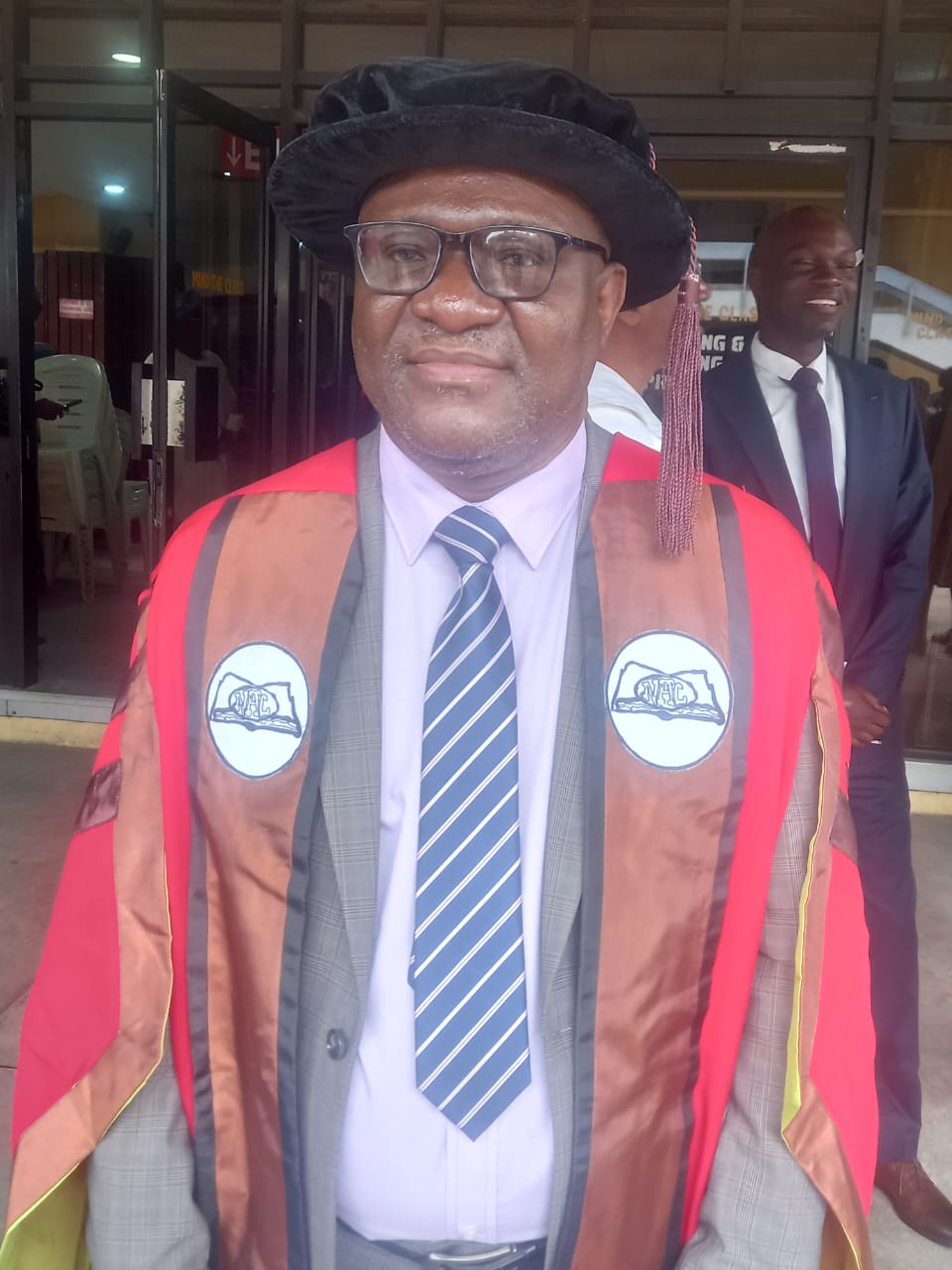
Enjoyed reading through this, very good stuff, thanks. “Curiosity killed the cat, but for a while I was a suspect.” by Steven Wright.